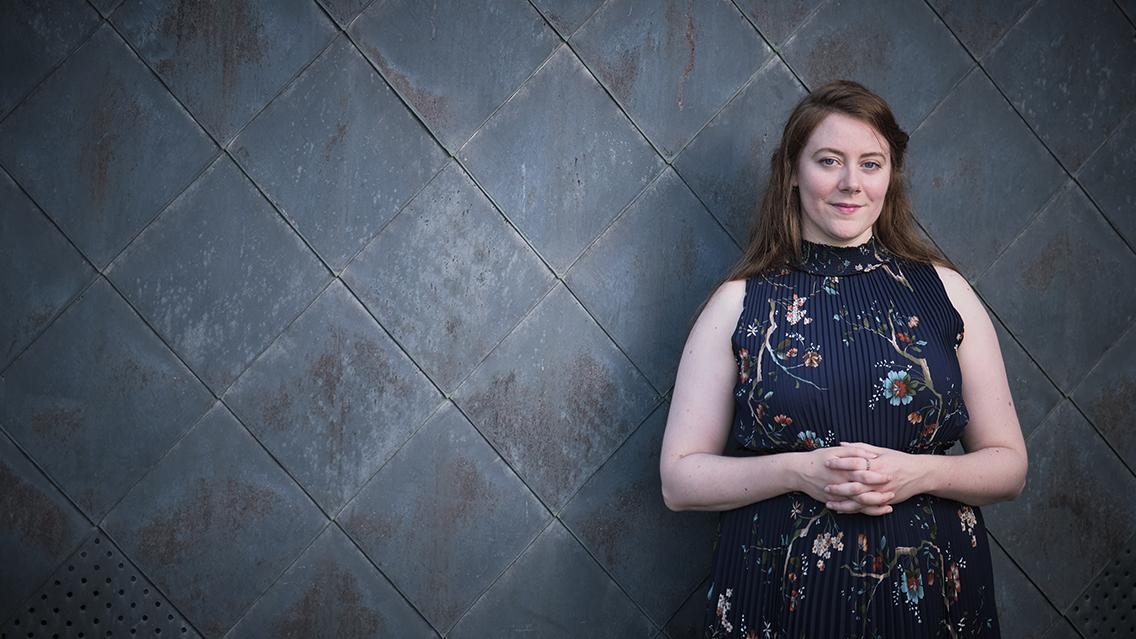Connection Among the Stars

A summer teaching science to refugee children showed Hannah Harris the power of language. A fellowship at the School of Korean has gave her the skills to advance international collaboration as a communicator for the International Astronomical Union.
On a sweltering summer day in 2016, Hannah Harris stood before a group of children in the Softex refugee camp—an abandoned toilet-paper plant on the industrial outskirts of Thessaloniki, Greece—holding a blowup model of the Earth above her head.
“Let’s pretend we’re all planets in the solar system,” she said to the children in English, then German. A young girl translated the English into Arabic; another the Arabic into Farsi. Beneath the unblinking watch of armed Greek soldiers, Hannah and the children marched in orbit around two five-year-olds holding up a deflated soccer ball as the Sun. Someone drop-kicked the Earth, and an improvised game of cosmic soccer ensued.
“It was great fun,” says Hannah, “but our lack of a common language made it hard to keep the kids focused.”
Just weeks earlier, Hannah had graduated from Wellesley College with a degree in astrophysics and a minor in Russian. In her senior year, Hannah had received a Madeleine Korbel Albright Fellowship, which included funding for a humanitarian project. Hannah chose to work in the Softex refugee camp, where she found opportunities to infuse moments of science into playtime with children.
Science is a powerful lens through which we can understand a society and through which we can direct our future.
“Astronomy is a powerful tool that can bring joy to children or become a platform for international collaboration and diplomacy,” says Hannah. Today, Hannah works as a science communicator for the International Astronomical Union (IAU). The IAU is the largest international organization of astronomers in the world. Among their active members is North Korea.
“It blew my mind when I learned that there are astronomers in North Korea,” says Hannah. Further investigation revealed that North Korean scientists have collaborated with astronomers in South Korea, China, Europe, and Australia on research, offering an elusive glimpse into an otherwise largely inaccessible country. Hannah believes that continued diplomatic progress with North Korea is vital and that having a deeper understanding of their science is valuable. “Science is a powerful lens through which we can understand a society and through which we can direct our future,” says Hannah
Many primary texts, academic research papers, and oral histories of Korean and Asian astronomy remain untranslated and omitted from Eurocentric narratives of science history and philosophy. With a summer at the School of Korean, Hannah can begin translating some of these works and recording the oral histories of North and South Koreans working together. Eventually, Hannah intends to design and curate a traveling exhibition on the history of astronomy in Korea and Asia, to debut at the upcoming IAU General Assembly in South Korea in 2022.
“The onus shouldn’t always fall on my Korean colleagues to explain their science and culture in my native language,” says Hannah. “I want to use my place in the international scientific community to communicate North and South Korean astronomy as an explicit tool for peacebuilding.”

